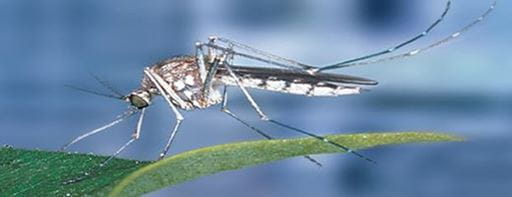Released on June 28, 2019
The Government of Saskatchewan is reminding residents to take precautions against mosquito bites, as the risk of West Nile virus increases in Saskatchewan.
The risk is highest between June and September when Culex tarsalis mosquitoes are most active and present in higher numbers. There is increased risk in the southern portions of the province.
“Most people who become infected with West Nile virus experience no symptoms or have mild illness with symptoms such as fever, headaches, and body aches,” Saskatchewan’s Deputy Chief Medical Health Officer Dr. Denise Werker said.
A small number of people develop a more serious illness called West Nile virus neuroinvasive disease. This can cause inflammation of the brain and may result in death.

“If you develop serious symptoms like a persistent fever, confusion, neck stiffness or an unusually severe headache, seek medical attention immediately,” Werker said.
The best way to reduce the risk of contracting West Nile virus is to take proper precautions.
This includes:
- Use appropriate insect repellent when outdoors.
- Cover up. Wear light coloured, loose fitting, long-sleeved tops and long pants when outdoors.
- Reduce the amount of time spent outdoors between dusk and dawn when Culex tarsalis mosquitoes are most active.
- Maintain door and window screens so they fit tightly and are free of holes.
- Reduce mosquito habitat around your home and yard (removing standing water, etc.)
West Nile virus was first identified in Saskatchewan in 2002. Major outbreaks of West Nile virus infection in humans occurred in 2003 and 2007. Between 2003 and 2018, there were 161 cases of West Nile virus neuroinvasive disease; 18 resulted in death.
More information about West Nile virus, including symptoms, prevention measures and weekly surveillance reports is available at
http://www.saskatchewan.ca/residents/health/diseases-and-conditions/west-nile-virus.
-30-
For more information, contact:
Shelley Svedahl
Health
Regina

